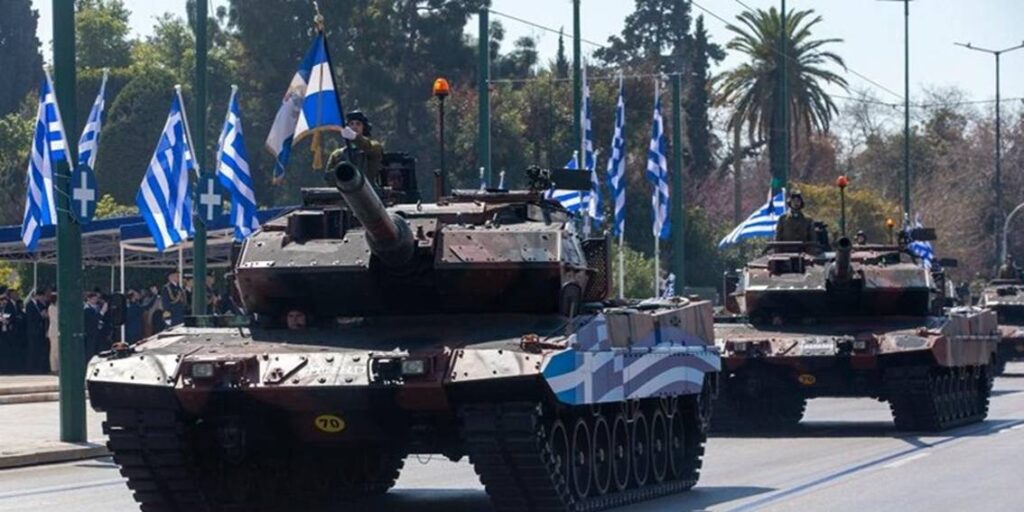The Greek Independence Day
The Greek Independence Day, celebrated annually on 25 March, marks a pivotal moment in Greece's history. This national holiday commemorates the start of the Greek War of Independence in 1821 against the Ottoman Empire. Combining patriotic fervor with religious significance, the day unites Greeks worldwide in celebrating their cultural heritage and honouring their ancestors' sacrifices.
Historical Background
The Greek War of Independence began after centuries of Ottoman rule, which started in the mid-15th century. Ottoman forces dominated the region following the fall of Constantinople in 1453. During this period, Greek culture, language, and religion faced suppression. However, Greek identity survived through the resilience of its people, the Orthodox Church, and secret societies like the Filiki Eteria (Society of Friends).
The Filiki Eteria, founded in 1814, played a crucial role in the uprising. Members organized and mobilized support across Greece and among the Greek diaspora. On 25 March 1821, Bishop Germanos of Patras raised the banner of revolution at the Monastery of Agia Lavra, symbolizing the official start of the uprising. The date also coincides with the Feast of the Annunciation, adding spiritual importance to the event.

The War of Independence
The struggle for independence unfolded in waves, with notable victories and devastating losses. Greek fighters, or klephts, led guerrilla campaigns against Ottoman forces. Sea battles also featured prominently, as naval powers like Hydra, Spetses, and Psara provided crucial support. Leaders such as Theodoros Kolokotronis and Laskarina Bouboulina gained legendary status for their courage and strategic brilliance.
The war captured international attention, inspiring philhellenes across Europe and America. Writers, artists, and intellectuals like Lord Byron championed the Greek cause, drawing attention to their plight. Philhellenes not only advocated for Greece but also joined the struggle, fighting alongside Greek revolutionaries.
Although the road to independence was fraught with hardship, unity and determination prevailed. The war concluded with the signing of the Treaty of Constantinople in 1832, establishing Greece as an independent state under the protection of Great Britain, France, and Russia.
Religious and Cultural Significance
Greek Independence Day holds deep religious meaning, as it coincides with the Feast of the Annunciation. This dual significance strengthens the connection between faith and freedom. The Feast celebrates the angel Gabriel’s announcement to the Virgin Mary of Jesus Christ’s imminent birth. For many Greeks, the parallel between divine intervention and national liberation underscores the belief that their fight for freedom carried divine blessing.
Churches across Greece and the diaspora hold special liturgies and processions. Clergy and worshippers

honour the Virgin Mary and remember those who fought and died for independence. The intertwining of faith and history reflects the pivotal role the Orthodox Church played during Ottoman rule, preserving Greek identity and supporting the revolution.
Modern Celebrations
Today, Greeks celebrate their Independence Day with pride and enthusiasm. Parades dominate the festivities, featuring schoolchildren in traditional costumes and military displays. In Athens, the grand parade in Syntagma Square attracts thousands of spectators, showcasing Greece’s military strength and cultural heritage.
Throughout the country, towns and villages host local events, including traditional dances, music, and feasts. The blue-and-white Greek flag decorates streets, homes, and public spaces, symbolizing national unity and freedom. Communities in the Greek diaspora also celebrate with parades, cultural events, and church services, ensuring the legacy of independence resonates worldwide.
Global Impact
The Greek War of Independence inspired freedom movements in other nations, highlighting the universal yearning for self-determination. Greece’s success encouraged oppressed peoples to challenge imperial powers and assert their right to sovereignty. The revolution also fostered philhellenism, which celebrated Greece as the cradle of democracy and Western civilization.
Artists and writers immortalized the war’s heroes and events, embedding the story of Greek independence

into the cultural consciousness of the 19th century. Paintings by Eugene Delacroix and poems by Lord Byron continue to evoke admiration for Greece’s struggle.
Honouring the Legacy
Greek Independence Day serves as a reminder of the resilience, courage, and determination that define the nation’s character. The sacrifices of the revolutionaries ensured Greece’s survival as a free state and preserved its cultural and historical legacy. This day encourages reflection on the value of liberty and the enduring importance of unity.
Conclusion
Greek Independence Day on 25 March represents far more than a historical milestone. It embodies the spirit of freedom, faith, and cultural pride that define Greece and its people. Through vibrant celebrations and heartfelt tributes, Greeks honour their past while looking toward a future shaped by the same values that fuelled their ancestors’ fight for independence.


